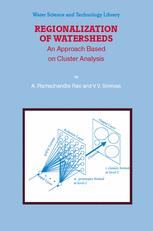

Most ebook files are in PDF format, so you can easily read them using various software such as Foxit Reader or directly on the Google Chrome browser.
Some ebook files are released by publishers in other formats such as .awz, .mobi, .epub, .fb2, etc. You may need to install specific software to read these formats on mobile/PC, such as Calibre.
Please read the tutorial at this link: https://ebookbell.com/faq
We offer FREE conversion to the popular formats you request; however, this may take some time. Therefore, right after payment, please email us, and we will try to provide the service as quickly as possible.
For some exceptional file formats or broken links (if any), please refrain from opening any disputes. Instead, email us first, and we will try to assist within a maximum of 6 hours.
EbookBell Team

0.0
0 reviewsDesign of water control structures, reservoir management, economic evaluation of flood protection projects, land use planning and management, flood insurance assessment, and other projects rely on knowledge of magnitude and frequency of floods. Often, estimation of floods is not easy because of lack of flood records at the target sites. Regional flood frequency analysis (RFFA) alleviates this problem by utilizing flood records pooled from other watersheds, which are similar to the watershed of the target site in flood characteristics.
Clustering techniques are used to identify group(s) of watersheds which have similar flood characteristics. This book is a comprehensive reference on how to use these techniques for RFFA and is the first of its kind. It provides a detailed account of several recently developed clustering techniques, including those based on fuzzy set theory and artificial neural networks. It also documents research findings on application of clustering techniques to RFFA that remain scattered in various hydrology and water resources journals.
The optimal number of groups defined in an area is based on cluster validation measures and L-moment based homogeneity tests. These form the bases to check the regions for homogeneity.
The subjectivity involved and the effort needed to identify homogeneous groups of watersheds with conventional approaches are greatly reduced by using efficient clustering techniques discussed in this book. Furthermore, better flood estimates with smaller confidence intervals are obtained by analysis of data from homogeneous watersheds. Consequently, the problem of over- or under-designing by using these flood estimates is reduced. This leads to optimal economic design of structures. The advantages of better regionalization of watersheds and their utility are entering into hydrologic practice.
Audience
This book will be of interest to researchers in stochastic hydrology, practitioners in hydrology and graduate students.